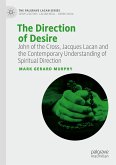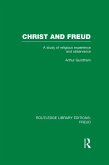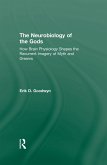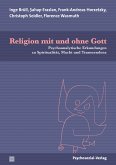Jacob A. Belzen, editor
In recent years, psychology of religion has experienced a remarkable comeback: research is expanding rapidly, benefiting from a genial scientific infrastructure. An important issue in psychology over a century ago, only a few decades later it vanished almost completely. Its unexpected international reemergence since the seventies has been facilitated by the work of visionaries with the energy and stamina to revive an entire branch of psychology.
In Psychology of Religion: Autobiographical Accounts, a number of these pioneers account for their development in this area, depicting the diverse contexts of their work, the difficulties they had to deal with, and the increasing contemporary possibilities for their field. Critical about their discipline and sometimes about themselves, they offer a unique assessment of the subject and show the way to further research and development. Thought-provoking topics discussed along the way include:
- The challenge of approaching religion from a psychological perspective.
- Psychology of religion as a natural extension of mainstream psychology.
- Why psychology of religion will continue to gain salience over time.
Psychology of Religion: Autobiographical Accounts will appeal to readers in general psychology, religious studies, and philosophy of science. Editor Jacob A. Belzen graduated in social sciences (Utrecht, Netherlands), history (Amsterdam, Netherlands), philosophy (Leuven, Belgium) and sciences of religion (Turku, Finland). He is a full professor at the University of Amsterdam, specializing in cultural psychology of religion, while also actively involved in empirical research on the history of his field. Recipient of various international awards, he counts among Europe's best-known psychologists of religion.
Dieser Download kann aus rechtlichen Gründen nur mit Rechnungsadresse in A, B, BG, CY, CZ, D, DK, EW, E, FIN, F, GR, HR, H, IRL, I, LT, L, LR, M, NL, PL, P, R, S, SLO, SK ausgeliefert werden.
"This volume will have a lasting place on library shelves as testimony that will be consulted by anybody with an interest in the development of the field and in the work of any of the contributors. The chapters can nicely supplement the prior knowledge one may have of the work of the contributors, or they can serve as an introduction to the academic personalities of those one has not yet read." (Michael Stausberg, International Journal for the Psychology of Religion, Vol. 24 (2), 2014)
"This is a collection of autobiographies of people who made a difference in the psychology of religion. ... The book demonstrates that the psychology of religion is flourishing and not simply a relic of the early days of psychology. ... The intended audience includes 'readers in general psychology, religious studies, and philosophy of science.' ... The authors, who represent many different theological perspectives, are willing to discuss their triumphs and tragedies. The book will inspire readers who want to learn more about this field." (Gary B. Kaniuk, Doody's Review Service, June, 2012)
This volume of autobiographical accounts from some of the most
famous international scholars in the psychology of religion will appeal to psychologists of religion and those interested in the discipline, as well as intellectual historians interested in tracing an irreducibly complex area of study that is undisputedly more heterogeneous than its parent discipline of psychology. Rather than providing pat answers to the origins and vicissitudes of the theories in this discipline, the editor brilliantly employs autobiographical accounts to provide the interpreter the freedom necessary to discover pattern, contradiction, and to discover the ways in which psychology of religion has mounted a modest resurgence in the contemporary era after an ostensible disciplinary death. This book chronicles the survival of amarginalized discipline of study through very hard times and is therefore a contribution to understanding the ways in which larger historical patterns condition the validity and usefulness of types of knowledge; this enormous task is masterfully executed with apparent ease through idiosyncratic autobiographical accounts. It remains moot whether or not the proper autobiographies have been chosen and what cause this will have on future interpreters of the discipline and this book. This weakness is accounted for by the editor's frank admission in his well-written introduction.
Joseph M. Kramp
John Jay College (CUNY)









